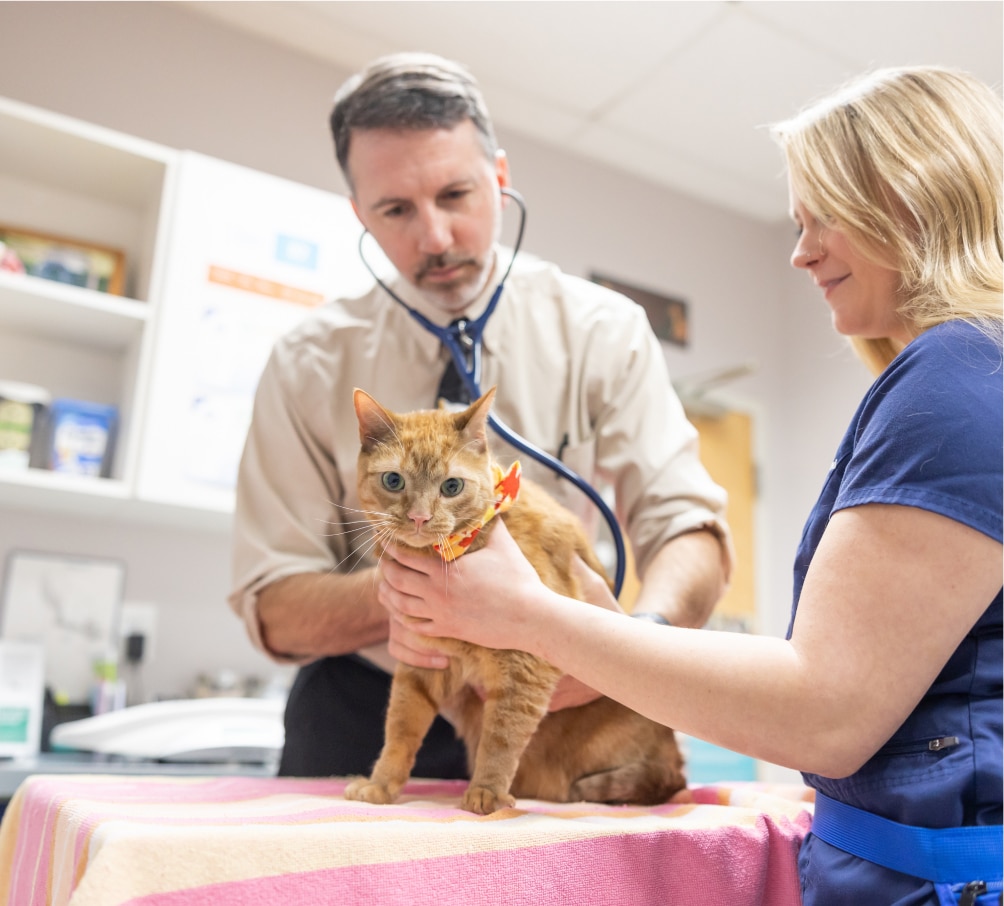Diabetes is a common disease that many people and pets live with.
While the initial diagnosis may be frightening, the good news is that treatments are available. When caught early enough, you can expect your pet to live a long and healthy life even with diabetes.
Here is everything you need to know about your diabetic pet:
Causes of Diabetes in Pets
In a healthy body, glucose is turned into usable energy through insulin, a hormone produced by the pancreas. When insulin production is too low, or if the body grows resistant to it, the glucose is unable to be processed by the body. This is known as diabetes.
The glucose increases in the blood and cells are less able to utilize it for energy, which can cause many health issues if left untreated.
Age and obesity are common risk factors for diabetes in pets.
Other times, the pet may be genetically predisposed to diabetes. Certain dog breeds are more at risk than others, including Miniature Poodles, Miniature Pinschers, Dachshunds, Schnauzers, Fox Terriers, Cairn Terriers, Beagles, Keeshonds, Australian Terriers, and Siberian Huskies.
Female dogs are also more likely to develop diabetes than their male counterparts. In cats, the opposite is true, and the disease is more prevalent in males.
Cats that eat dry food are more likely to become obese and develop diabetes.
Symptoms of Diabetes in Pets
Some early, common symptoms to keep an eye out for include:
- Excessive drinking
- Excessive urinating
- Loss of appetite
- Weight loss
- Lethargy and depression
- Cloudy eyes
In more extreme cases, you may notice your pet has stopped eating entirely, is suffering from recurrent infections, or diabetic seizures. If you notice your pet experiencing any of these symptoms, call your vet immediately.
Diagnosis
A vet typically diagnoses a pet with diabetes through blood and urine samples.
They measure the amount of glucose in the blood to determine if it is above normal levels. The urine is checked for the presence of glucose and other abnormalities that may indicate more advanced conditions associated with diabetes. The vet may wish to check a ‘fasting’ blood glucose to confirm the diagnosis.
Other tests may be done at this time to determine if the pet has any infections or internal organ damage caused by diabetes. Sometimes severe conditions associated with diabetes will require hospitalization.
Treatment of Diabetes in Pets
If your pet tests positive for diabetes, the vet will discuss treatment of diabetes, including starting insulin and appropriate dietary management.
For type 2 diabetes in cats, if diagnosed early enough, a change in lifestyle can often be enough to cure the condition.
This can include a strict diet and increased exercise as advised by the vet. An early diagnosis is crucial to treating diabetes before it causes irreversible damage.
Type 1 diabetes is not known to have a cure, though its symptoms can be treated.
This typically takes the form of regular insulin shots, and your vet can explain how to store and administer the insulin at home.
Veterinary Diabetes Care in Frederick, Maryland
If you believe your pet may have diabetes, Old Farm Veterinary Hospital can help. Our caring team of experienced vets can help diagnose and treat a range of diseases in your cat or dog. Don’t wait for severe symptoms to emerge – call today to schedule an appointment.



